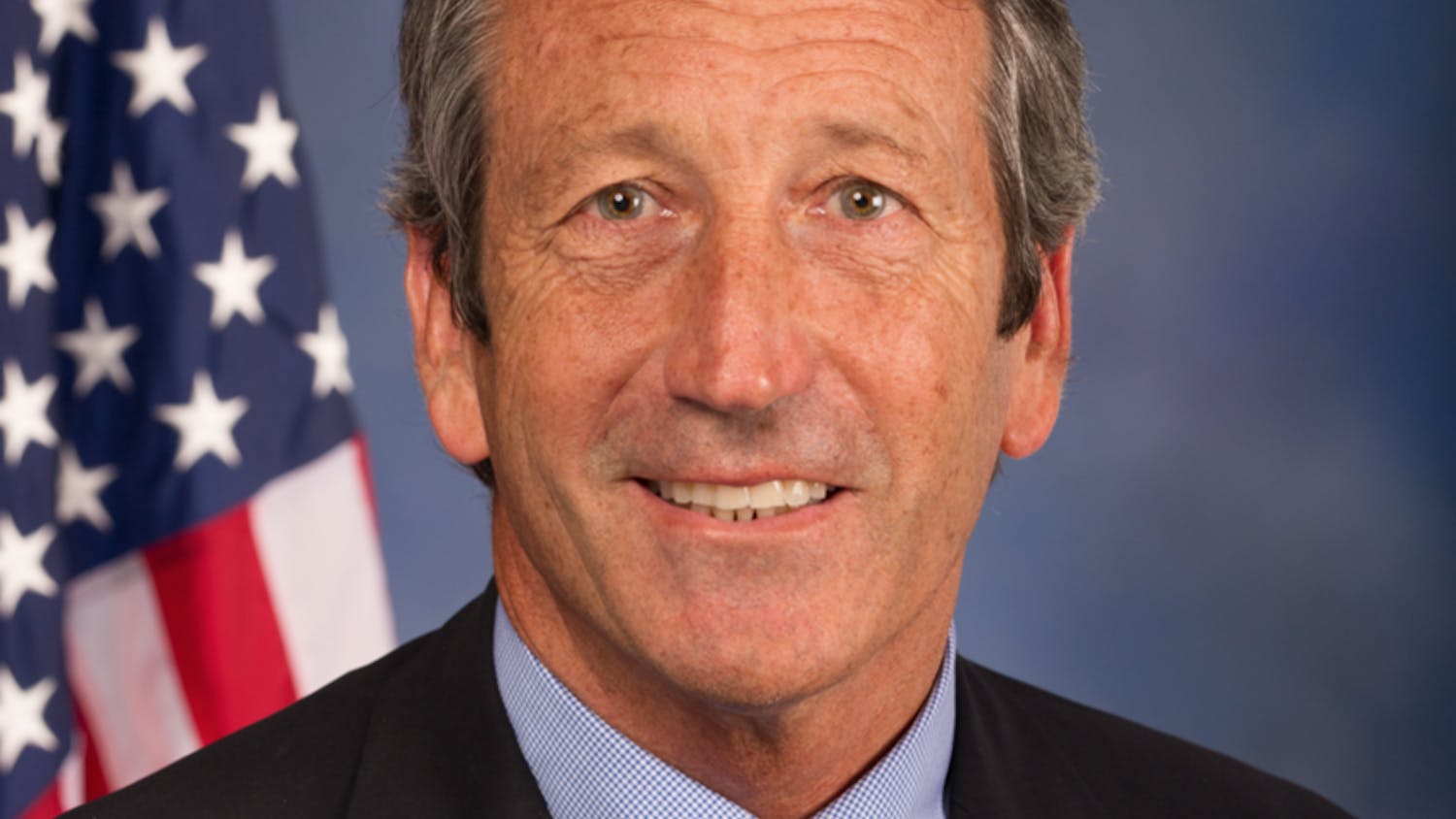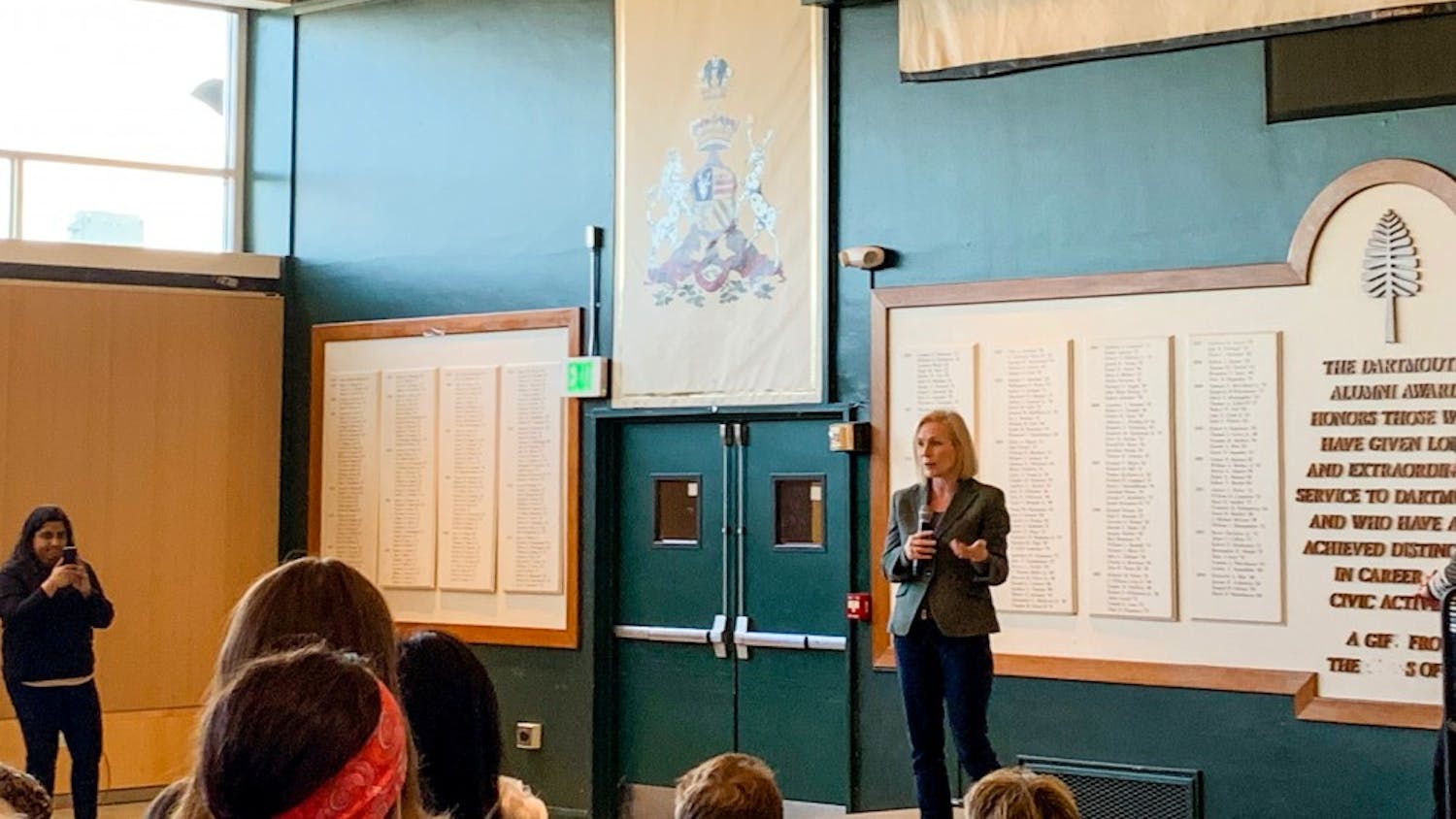Last Wednesday, former Massachusetts governor Bill Weld, who is challenging President Donald Trump for the Republican Party’s 2020 presidential nomination, returned to Dartmouth for an event sponsored by the Rockefeller Center for Public Policy called “The Future of the American Presidency.”
Weld sat alongside public policy professor Charlie Wheelan ’88 during the question and answer-style event in front of an audience of around 80 students, faculty and Hanover residents. In addition to two brief speeches on the current and future state of the American presidency, Weld answered numerous questions on policy, which were submitted by audience members.
Rockefeller Center assistant director Robert Coates said Weld’s visit is part of an ongoing effort to bring in notable speakers and coincides with the Center’s long history of hosting presidential candidates.
“We are trying to provide a forum for students to be able to have proximity to figures like Weld,” Coates said.
In his opening discussion of the current nature of the American presidency, Weld reflected on the Washington of the 1970s and 1980s.
“When I first worked in DC, it was a wonderful time,” Weld said. “There was no reaching across the aisle, because you didn’t have to reach.”
Weld said that if someone was speaking in the Senate or the House of Representatives, the aisles would be full of people coming to listen attentively. He added that he currently sees a different reality.
“The parties in DC seem locked in a death-style embrace,” he said.
Weld criticized the excessive spending he observes on both sides of the political spectrum.
“The [Democrats] want to raise social spending five percent, the GOP wants to raise military spending by five percent, and then they get together and raise everything 20 percent,” he said, eliciting laughter from the audience.
Weld said he entered the presidential race after deciding that Trump had become a “threat to democratic institutions,” adding that he feared for the social cohesion of the United States.
Weld said he defines himself as “socially open” and an “economic conservative,” setting himself apart from the “movement conservatives” who he said practice a more rigid social conservatism.
“I was 20 years ahead of my time on reproductive rights and gay and lesbian civil rights,” Weld said. “Everyone thought I was crazy.”
During the event, Weld addressed an audience member’s question about how he felt regarding the balance between Congress and the Supreme Court. Referring to political history — as he did several times during the hour-long event — he said that during the past several decades, he said he has seen a trend toward increasing power in the executive branch.
“The accretion to power of the executive branch under LBJ was astounding,” he said.
Weld, who holds a law degree from Harvard University, said he wholeheartedly approves of impeaching Trump. He referenced his early career and involvement in the impeachment process against President Richard Nixon in 1974, when he worked alongside colleagues such as Hillary Clinton on the U.S. House Judiciary Committee. He added that he could add a minimum of 10 instances of criminal obstruction of justice to the current list of grievances against Trump.
Responding to other questions from the audience, Weld voiced his support of nuclear power as a means to combat climate change, his support of red-flag laws as a means for gun control and his belief that 15 percent of American jobs may be replaced by new technologies in the near future.
Citing his favorite maxim, “To govern is to choose,” Weld said that, as president, he would expand technical training for Americans displaced by new technologies.
“Artificial intelligence will generate a vast amount of wealth,” he said. “There will be replacement jobs which will require two or three semesters of training.”
At the more intimate roundtable discussion held after the event, Weld said he could successfully interrupt Trump’s bid for re-election.
“I could do some real mischief,” Weld said. “And nothing would give me greater pleasure to create enough trouble for Trump that he wouldn’t win. It wouldn’t be winning, but it’s fine with me.”
Weld said that he would content with unseating Trump, which he believes could be accomplished if his campaign shifted Trump’s voter base enough to prevent his re-election, even if it means the eventual Democratic nominee wins the election.
Weld said that he worries for the image of the United States abroad with Trump as president.
“Every country looks at the U.S. as a model for the world,” he said. “Countries want to do business here because they know we abide by the rule of law. The president has shown little regard for this rule of law.”
Charlotte Nutt ’19, who attended the event, said that she is “fairly left-leaning,” but she has always been interested in what conservative candidates have to say. As an economics major, she said she appreciates seeing issues from both sides, and has attended several Rockefeller Center events throughout her time at Dartmouth.
Coates said the Rockefeller Center is currently engaged in discussions about how to attract more presidential candidates in upcoming months.
“Once the candidates make the turn from Iowa to New Hampshire, it is figuring out how we can attract some of those, with a deliberate precondition of talking policy on campus,” Coates said. “It’s about getting students access to additional Democratic or Republican candidates.”



